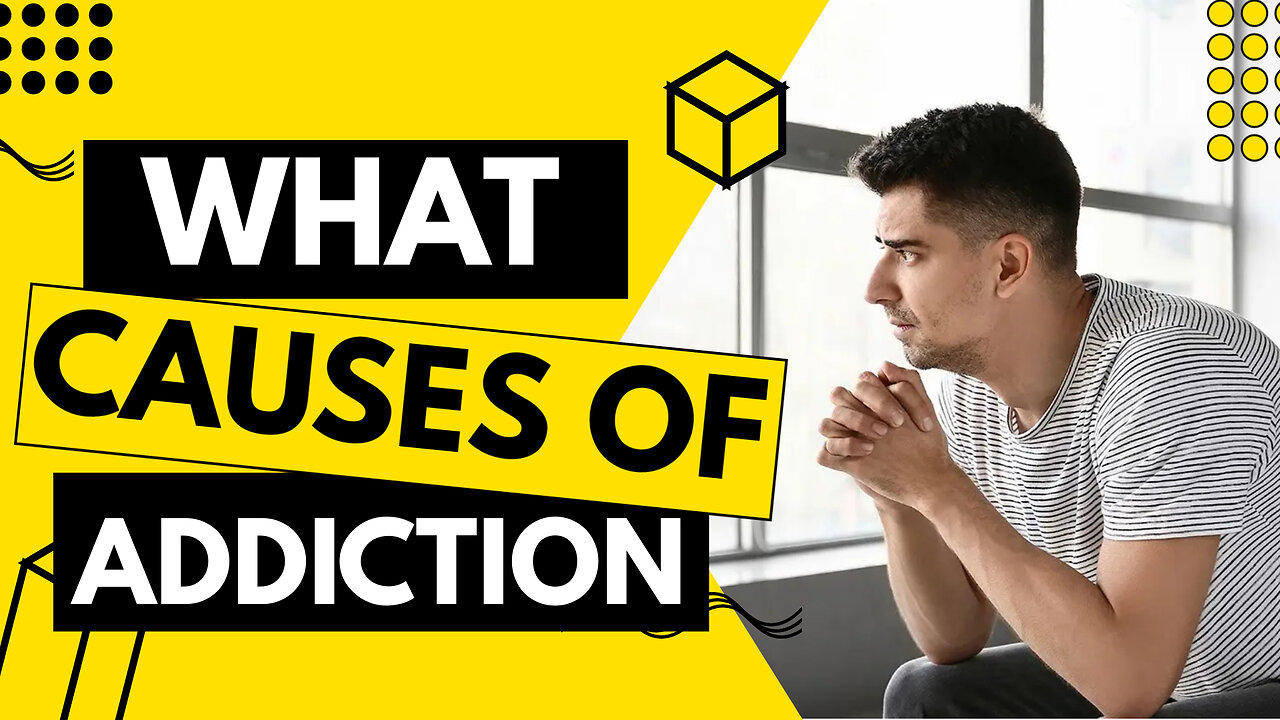Premium Only Content

What Causes Addiction - The Science of Addiction
In the realm of neuroscience, psychology, and public health, addiction remains a formidable challenge. From substance abuse to compulsive behaviors, addiction can exert a powerful grip on individuals, often leading to devastating consequences for both the affected individual and society at large. Understanding the intricate mechanisms that underpin addiction is crucial for developing effective prevention and treatment strategies. In this comprehensive exploration, we delve deep into the science of addiction, unraveling its causes, manifestations, and potential avenues for intervention.
Before delving into the science behind addiction, it’s essential to establish a clear definition of what addiction entails. Addiction is a complex condition characterized by compulsive engagement in rewarding stimuli despite adverse consequences. This definition encompasses a wide range of addictive behaviors, like play games, internet addiction, and compulsive eating.
At its core, addiction involves alterations in brain function and neurochemistry, fundamentally reshaping the way individuals process reward, motivation, and decision-making. Key neurotransmitter systems, including dopamine, glutamate, and serotonin, play pivotal roles in the development and maintenance of addictive behaviors. Dopamine, in particular, is implicated in the brain's reward circuitry, reinforcing pleasurable experiences and driving the cycle of addiction.
While environmental factors undoubtedly influence addiction, genetic predispositions also contribute significantly to an individual's susceptibility to addictive behaviors. Family and twin studies have provided compelling evidence of genetic heritability in addiction risk, with certain genetic variations increasing the likelihood of developing substance use disorders or other addictive behaviors.
Psychological processes, including stress, trauma, mental health disorders, and personality traits, also contribute to the development of addiction. Many individuals turn to addictive substances or behaviors as a means of coping with negative emotions or seeking temporary relief from psychological distress. Moreover, certain personality traits, such as impulsivity and sensation-seeking, are associated with an increased risk of addiction.
-
 4:07
4:07
Sean Unpaved
1 hour agoFBI Hoops Bust Day 2!, NFL/CFB Week 8-9, & World Series Opener Preview
3.19K -

Lara Logan
14 hours agoPUTIN’S QUIET DIPLOMAT: Kirill Dmitriev on Peace & War in Ukraine | EP 41 | Going Rogue w Lara Logan
5.76K2 -
 LIVE
LIVE
Side Scrollers Podcast
1 day ago🔴SIDE SCROLLERS SUB-A-THON🔴FINAL DAY!🔴Craig Makeover + US Dart Throw + More!
1,273 watching -
 12:29
12:29
Clintonjaws
17 hours ago $24.15 earnedShane Gillis vs 'The View' - This Is Priceless!
55.2K23 -
 1:29:35
1:29:35
Steven Crowder
4 hours agoWhich Way Western Man: Zohran Mamdani & The Great Rice Debate
221K173 -
 32:55
32:55
The Rubin Report
3 hours agoCrowd Roars for Cuomo’s Blistering Attack on Zohran Mamdani
31.6K54 -
 LIVE
LIVE
The Mel K Show
3 hours agoMORNINGS WITH MEL K - Slow Rolling Disclosure Becoming Unstoppable Truth Tsunami - 10-24-25
651 watching -
 LIVE
LIVE
Major League Fishing
8 days agoLIVE! - Fishing Clash Team Series: Patriot Cup - Day 3
360 watching -
 37:24
37:24
Tudor Dixon
3 hours agoTed Nugent Sounds Off on Big Government Meddlers | The Tudor Dixon Podcast
13.4K6 -
 1:31:27
1:31:27
Stephan Livera
2 days ago $6.91 earnedDAY 1 - Stephan Livera hosts Plan B Podcast in Lugano
24.7K1